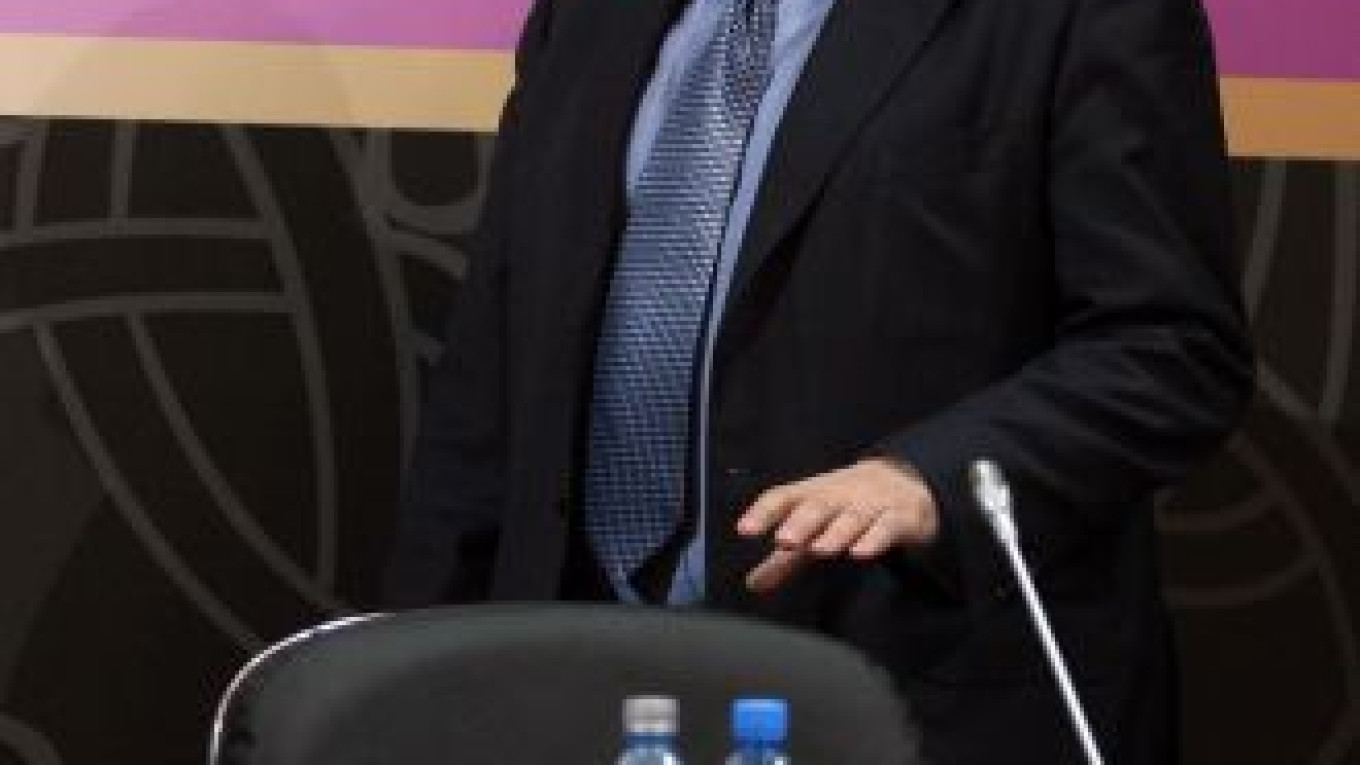Georgy Poltavchenko, a former KGB officer and staunch ally of Prime Minister Vladimir Putin, emerged Monday as the prime pick for the St. Petersburg governor's seat, which was vacated by Federation Council-bound Valentina Matviyenko.
Matviyenko, 62, resigned Monday after sweeping the vote in two local district by-elections a day earlier. The victory made her eligible for the upper chamber, where the ruling United Russia party has promised to make her speaker.
The Kremlin kept silent on her successor until , when Poltavchenko, 58, the presidential envoy to the Central Federal District, was appointed acting governor.
Matviyenko ran for a council seat in two St. Petersburg districts, winning 93.7 percent with 2,593 votes in Petrovsky and 94.5 percent with 3,830 votes in Krasnenkaya Rechka, election officials said.
The campaign was fraught from the get-go with fraud accusations and was denounced by opposition leaders for gratuitous use of administrative resources.
Election officials, however, found no serious violations and approved both election results Monday. Matviyenko accepted the seat in Krasnenkaya Rechka, where she scored the better result.
Krasnenkaya Rechka, however, had a smaller relative turnout, with 28.9 percent of voters coming to the polls, compared with 36.54 percent in Petrovsky. But the deputy head of the St. Petersburg elections commission, Dmitry Krasnyansky, insisted that both turnouts were "record-breaking for a district vote," Kommersant reported.
It remained unclear when Matviyenko might enter the Federation Council, where the speaker's seat has been vacant since May, when Just Russia leader Sergei Mironov was ousted by the St. Petersburg legislature, controlled by the rival United Russia party.
Matviyenko, who had served as St. Petersburg governor since 2003, steadily lost popularity with local residents in recent years, and her reshuffle is seen by observers as a Kremlin attempt to strengthen its position in the city ahead of State Duma elections in December.
Speculation had swirled about her likely successor, although most observers agreed that the job would go to another of Putin's cadre of old St. Petersburg associates whom he worked with in the city government in the 1990s. Among the favorites were Kremlin chief of staff Sergei Naryshkin and First Deputy Prime Minister Dmitry Kozak — but never Poltavchenko.
Poltavchenko, born in Azerbaijan's capital, Baku, grew up in Leningrad, where he met Putin through the KGB. Poltavchenko headed the city's tax police from 1993 to 1999, when he was appointed the Kremlin's envoy to the Leningrad region; in 2000, he was promoted to envoy of the Central Federal District.
Poltavchenko has yet to be named full-time governor, but Nikolai Petrov, a regions analyst with the Carnegie Moscow Center, said the appointment is all but guaranteed.
"He was the longest-serving Kremlin envoy, and his promotion had been expected for a long time," Petrov said by telephone.
Expectations about Poltavchenko, whose involvement in public politics remains limited, were still unclear Monday, but the leader of the city branch of the liberal Yabloko party, Maxim Reznik, welcomed him simply for not being a member of Matviyenko's team.
"It's a positive move," Reznik said, Interfax reported. But he criticized the fact that residents of St. Petersburg, the country's second-biggest city with a population of 4.8 million, will be given no say in who will govern them.
A Message from The Moscow Times:
Dear readers,
We are facing unprecedented challenges. Russia's Prosecutor General's Office has designated The Moscow Times as an "undesirable" organization, criminalizing our work and putting our staff at risk of prosecution. This follows our earlier unjust labeling as a "foreign agent."
These actions are direct attempts to silence independent journalism in Russia. The authorities claim our work "discredits the decisions of the Russian leadership." We see things differently: we strive to provide accurate, unbiased reporting on Russia.
We, the journalists of The Moscow Times, refuse to be silenced. But to continue our work, we need your help.
Your support, no matter how small, makes a world of difference. If you can, please support us monthly starting from just $2. It's quick to set up, and every contribution makes a significant impact.
By supporting The Moscow Times, you're defending open, independent journalism in the face of repression. Thank you for standing with us.
Remind me later.


